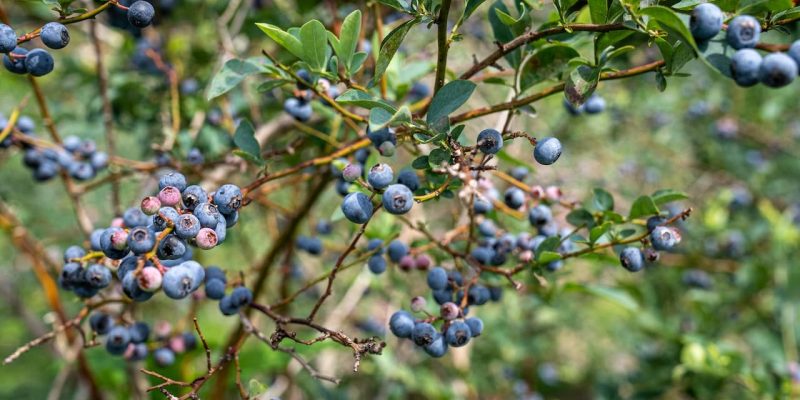Blueberries, with their vibrant hues and delicious taste, are a favorite eating treat for many birds. As these feathered creatures peck at the fruit, they not only lead to a direct loss of produce but often leave blemishes, diminishing the commercial value of the berries. Additionally, these pecked fruits attract pests like beetles and fruit flies, and the damaged areas become breeding grounds for harmful bacteria, threatening the health of both the leaves and the fruit.
Don’t Miss: Best Bird Netting for Fruit Trees
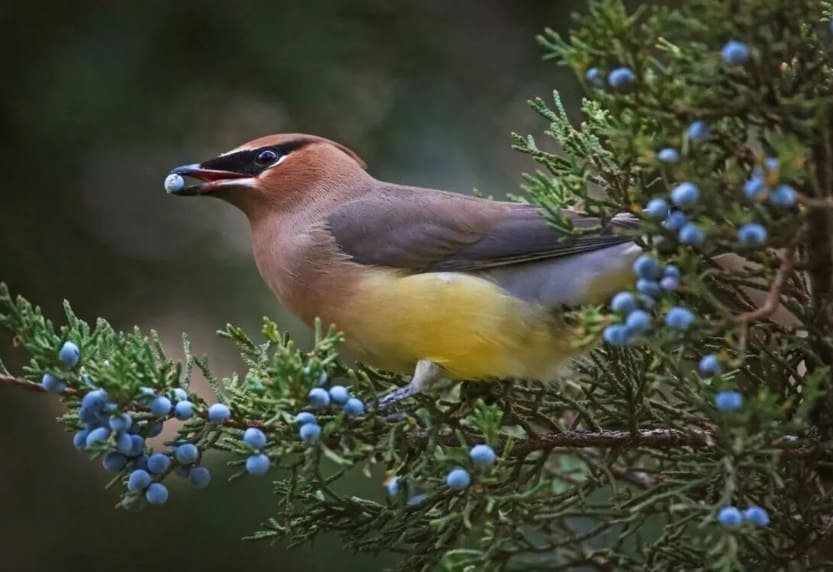
Bird eating blueberries
Recognizing these challenges, it’s essential to adopt measures to keep birds away from blueberry farms. In this article, we’ll delve deep into popular methods for protecting blueberries from birds, exploring their features and best-use scenarios to help you safeguard your ripe blueberries effectively.
Main Bird Pests of Blueberries
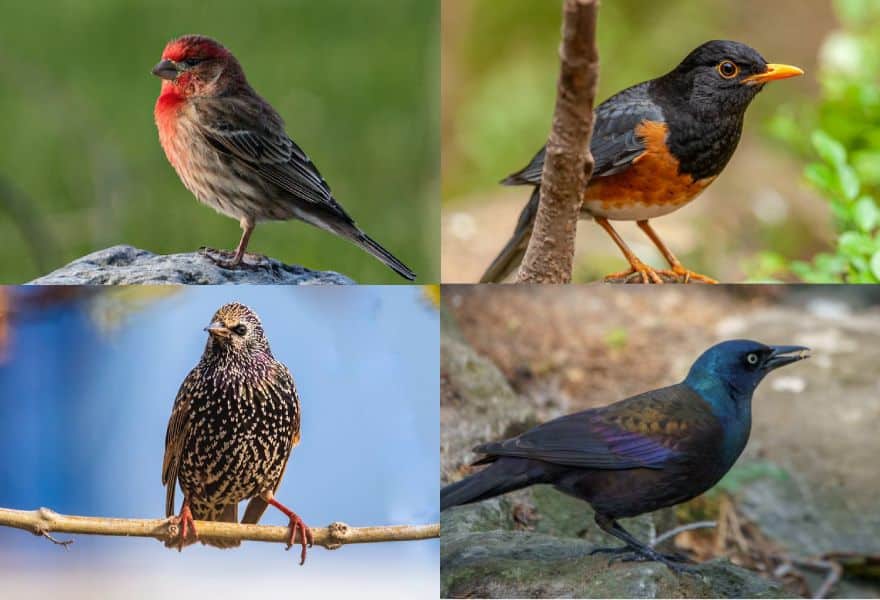
Main Bird Pests of Blueberries
Based on a survey by Utah State University involving North American blueberry committee members, researchers, and promoters, 84% of respondents considered birds a severe or moderate threat to blueberries. The Starling, Robin, and Common grackle are identified as the most damaging bird species.
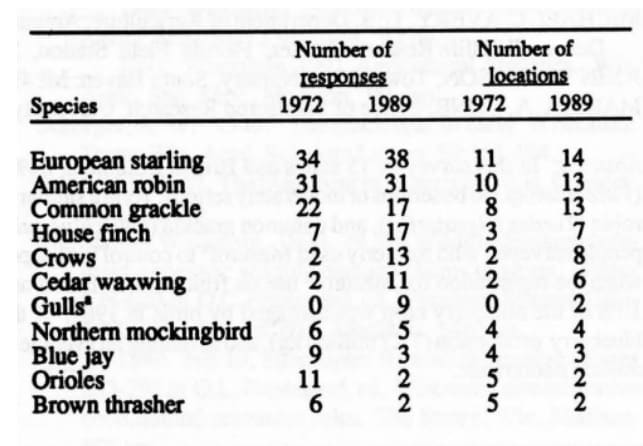
Most damaging bird species for blueberries – usu.edu
Best Strategies to Keep Birds Away from Blueberries
Birds start targeting blueberries from May to August, right when they begin to ripen. Throughout history, people have tried over ten methods to keep birds from eating blueberries.
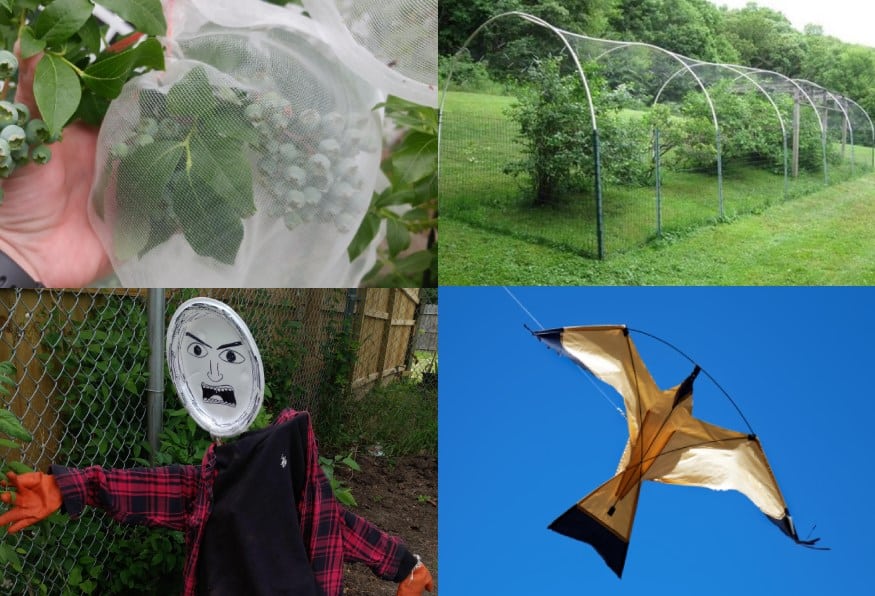
Methods to keep bird away from blueberries
Some set up nets as physical barriers for blueberry protection from birds. Others use sounds or objects to mimic bird predators. There are also techniques that utilize smoke, water sprays, electric grids, and scents to disrupt the birds’ senses. In places where the law permits, some even resort to shooting or using poison against these birds.
However, based on numerous studies and reports, nets are widely recognized as the most effective solution. When possible, combining various methods can yield even better results.
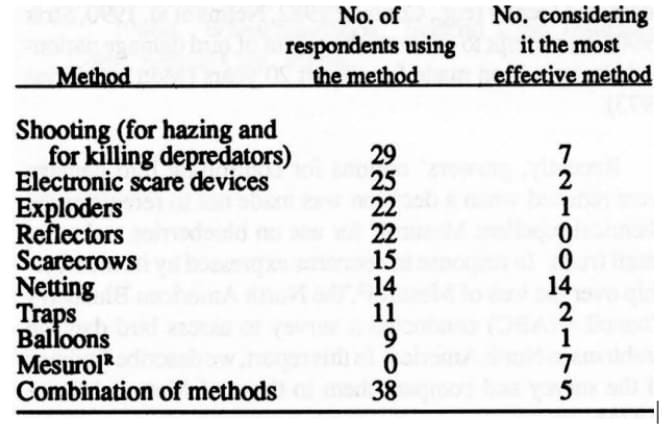
Frequency of use and most effective method to protect blueberries from birds during 1989 – uss.edu
13 Methods to Protect Blueberries from Birds
Here’s a roundup of techniques people have used to shield blueberries from bird attacks. This table provides an overview of their applications, benefits, and effectiveness.
| Bird Deterrence Method | Description | Advantages | Considerations | Applicable Settings | Effectiveness Rating |
| Netting | Covering the orchard with mesh or fine net. For a few plants, net bags over individual blueberries can be considered. | Highly effective, protects against birds and hail | Requires significant investment | All types of orchards | ★★★★★ |
| Human Scare Tactics | Frequent patrols and bird scaring at dawn and dusk | Direct and timely | Labor-intensive | Small to medium orchards | ★★★☆☆ |
| Sonic Deterrence | Devices that play intimidating sounds | Broad coverage, automated | Might cause noise disturbances for residents | Large orchards | ★★☆☆☆ |
| Visual Deterrence | Use of models or reflective materials | Low cost, simple | The position needs adjustment to avoid bird adaptation | All types of orchards | ★★☆☆☆ |
| Smoke & Water | Emitting smoke or spraying water | Dual effects: cleaning and repelling | Avoid harming trees or fruits | Large orchards | ★★☆☆☆ |
| Electric Grids | Electric bird prevention wires around the orchard | Continuous effect | High cost, needs careful handling | Medium orchards | ★★★☆☆ |
| Scent Deterrence | Spraying bird repellent | Doesn’t affect fruit quality | Might need frequent application | All types of orchards | ★★☆☆☆ |
| Using Poison | Poison bait to attract and kill birds | Handles massive bird infestations | Hazardous to other creatures and possibly humans | Large orchards | ★★☆☆☆ |
| Shooting | Hunting birds where it’s legally permitted | Rapidly reduces bird numbers | Legal constraints, ecological concerns | All types of orchards | ★★☆☆☆ |
| Trapping | Using traps to capture birds | Long-term solution | Might trap non-target species | Medium orchards | ★★☆☆☆ |
| Nest Boxes | Installing owl and hawk nest boxes to attract natural predators | Ecological balance, sustainable | Monitoring required to ensure bird safety | All types of orchards | ★★★★☆ |
| Falconry | Using falcons to hunt or deter birds | Natural, sustainable | Needs professionals, and can be costly | Large orchards | ★★★★☆ |
| Habitat Reduction | Reducing or altering preferred bird habitats | Strategic long-term method | May require time and effort | All types of orchards | ★★★☆☆ |
Note: This table draws inspiration from research and materials provided by the University of New Hampshire.
FAQs:
1. When to cover blueberry bushes to protect from birds?
It’s essential to protect your blueberry bushes from May through August. This timeframe is when blueberries transition from their growth phase to their ripening stage. As they mature, the berries transform, becoming juicier and changing in color, which inevitably catches the attention of various bird species.
2. What is the best bird netting for blueberries?
The best bird netting for blueberries typically consists of lightweight, UV-resistant polyethylene or polypropylene mesh. The mesh should be fine enough to prevent even small birds from accessing the berries, usually around 1/2 to 3/4 inches in size.
3. Apart from birds, what else should I guard my blueberries against?
Protecting blueberries isn’t just about birds; there are several other concerns. Common pests include the blueberry maggot and spotted wing drosophila. Additionally, diseases like blight and fungi can affect the bushes.
It’s essential to monitor plants for insects, ensure proper spacing for air circulation, and keep the area free from fallen berries and leaves to minimize these risks. Regular soil tests and correct fertilization can also boost plant health, making them less susceptible to diseases.
